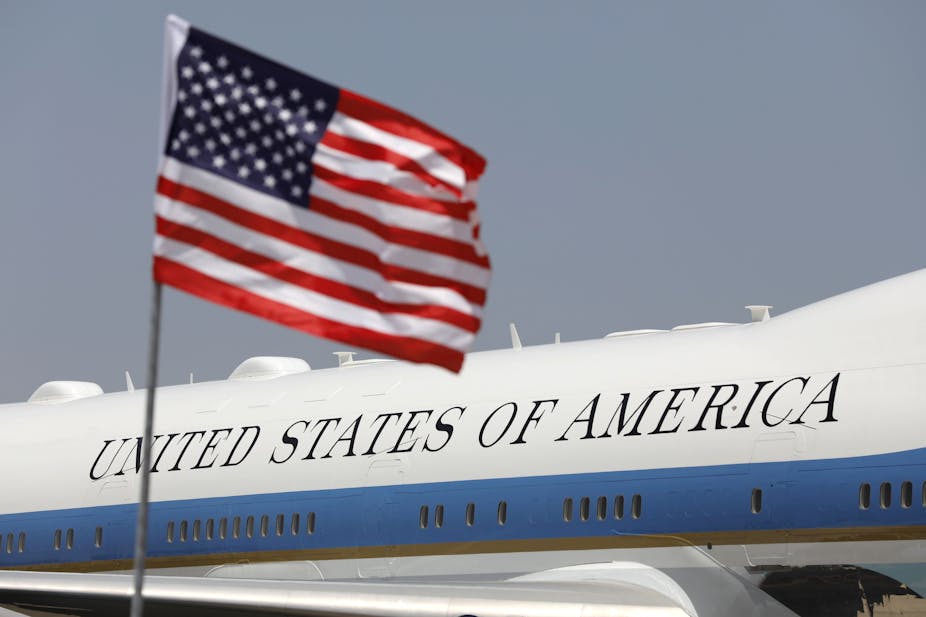Donald Trump’s latest bombastic remarks on North Korea’s nuclear weapons programme, threatening Kim Jong-un with “fire and fury” for his continued provocations are a stark reminder of how drastically the rhetoric of national security has changed in Washington. Where the Obama doctrine offered measured pragmatism and a mix of restraint, targeted counter-terrorism measures and diplomatic engagement, Trump has responded with martial swagger.
From launching cruise missiles on Syria to dropping the so-called “mother of all bombs” on IS fighters in Afghanistan, however, the Trump doctrine is neither coherent nor consistent. Instead of providing a strategic rationale for US foreign policy, the White House offers sabre-rattling and one-off military fireworks.
But there is a deeper problem: the US’s political consensus on national security has all but completely broken down. The world’s only remaining superpower is in a full-blown identity crisis about its current purpose, future position and adequate role on the world stage; Trump’s bluster is only a symptom of this malaise.
By now, political polarisation and the fracturing of political parties are more or less the defining features of American politics. Senate Republicans’ recent failure to replace and repeal “Obamacare” laid bare their deep divisions; on the other side of the aisle, the Democrats are tussling over whether or not to embrace Bernie Sanders’s “democratic socialist” ideas and move beyond Hillary Clinton’s orthodox centrism.
But these are more than mere shock waves from Trump’s victory; they’re part of something much more complicated. As I argue in my new book, American Grand Strategy under Obama, the US’s political dysfunction did not begin with Trump, and it’s not confined to domestic politics. Even before Barack Obama was first sworn in, America was losing its sense of its role in the world.
Indispensable no more
Starting at the end of World War II, the US followed a grand strategy of liberal hegemony: using American diplomatic leverage, military might and economic weight to deter potential aggressors, foster the global spread of democracy, uphold the international rule of law, and guarantee free trade in support of a globalised economy.
Underwriting this strategic vision was the belief in American exceptionalism. The US wasn’t just different from other nations; it had a unique mission to lead the world and make it “safe for democracy”, via the use of force if necessary. Obama himself declared the US exceptional on several occasions, singling out its constitution, the size of its economy, and its unmatched military capability.

But at the same time, Obama challenged the established Washington consensus by frequently questioning the virtues of military intervention. As commander-in-chief, he clearly articulated how much war had cost the US in both blood and treasure; he preferred “nation-building at home” over remaking the Middle East in America’s image.
The elite consensus on American exceptionalism, liberal hegemony and military interventionism fractured, and not least in the president’s own words and actions. In 2011, Obama simultaneously announced a “surge” and then withdrawal in Afghanistan; he “led from behind” in Libya“, and drew – and then failed to enforce – a military "red line” on chemical weapons use in Syria.
But the most serious (and most surprising) split over America’s role in the world happened on the political right.
One party, three strategies
GOP establishment figures such as Mitt Romney and Marco Rubio, supported by neoconservative intellectuals, pundits and think tanks, had not moved far beyond the notorious Bush doctrine, under which the global primacy of the US was enforced via premptive, unilateral military action. But come the late 2000s, their party was racked with ideological dissent.
The Tea Party movement, which kicked off in 2009 to oppose Obama on a platform of limited government, tax cuts and fiscal austerity, soon came into direct conflict with the Republican establishment and its intelligentsia, helping to unseat several established members of Congress.
On the one side, libertarian Republicans such as Kentucky Senator Rand Paul and like-minded organisations such as the Cato Institute rejected the large defence budgets and foreign interventions through which America had responded to 9/11, questioning an open-ended “War on Terror” and warning that the military-industrial complex and state surveillance could eventually corrupt republican government and civil liberties.
Then there was the Jacksonian populist wing of the Tea Party, among them Trump White House strategist Steve Bannon and his co-creation Breitbart News. They rejected liberal hegemony in favour of a neo-isolationist nationalism, a philosophy that runs through Trump’s mantra of America First. Instead of spreading democracy, this strategic vision of America disdains immigration and free trade while questioning the value of longstanding alliances such as NATO.

It wasn’t just the Republican party however. The Obama years saw the orthodoxy of American grand strategy attacked by a diverse array of critics from both right and left, including libertarian and populist conservatives, progressive liberals such as Bernie Sanders, and neo-realist international relations scholars. From their different standpoints, they all argued that the strategic vision of liberal hegemony and military interventionism had overextended American commitments and squandered financial and military resources; instead of making America safer, they charged that interventions in Afghanistan, Iraq and Libya had turned out to be destabilising liabilities.
Both Obama and Trump reflected some of that criticism, albeit in dramatically different ways. Where Obama endorsed military restraint on several occasions – not least in a much-read interview on the Atlantic – Trump called NATO “obsolete” and at one point suggested that the US could withdraw its troops from South Korea and Japan. As president Trump may have been softening those views on some fronts (not least NATO), but the message is clear: US allies can no longer take America for a “free ride”.
In the end, whereas Obama attempted to open up the prevailing Washington consensus, trying to reconcile American exceptionalism with a more limited use of US power, Trump and his coterie are trying to dissolve it altogether. For now “fire and fury” seem to have taken its place.

